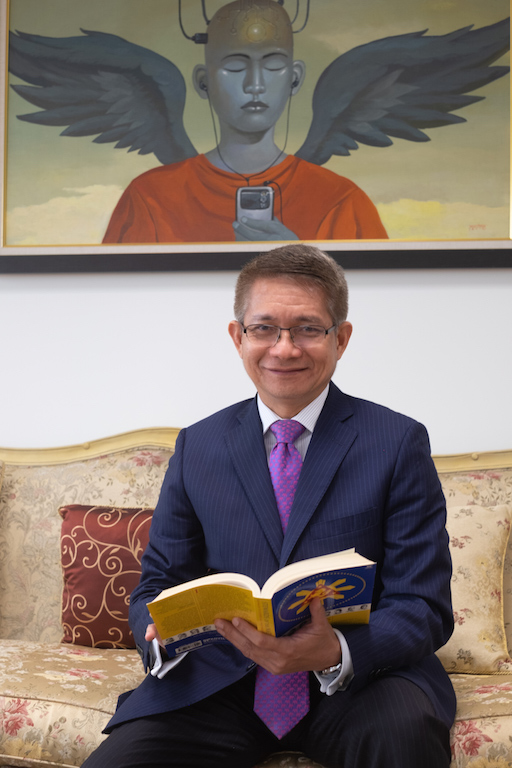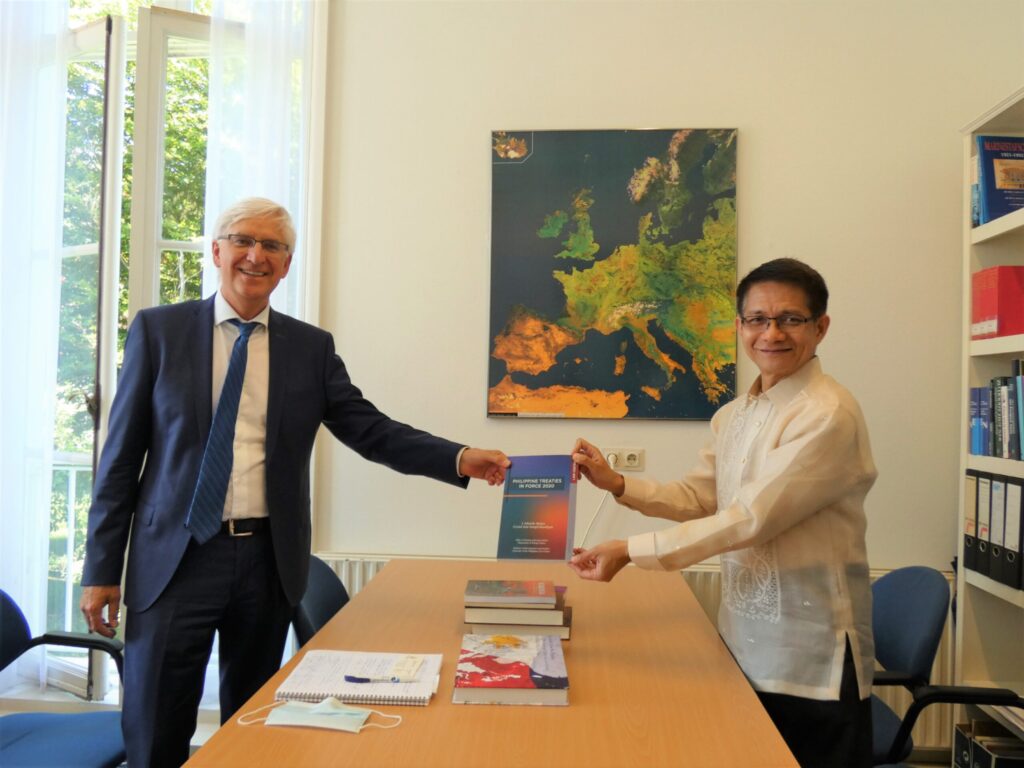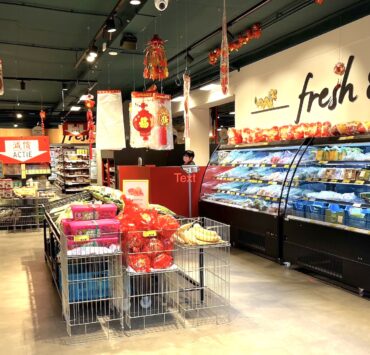We are used to seeing them in their formal suits, working hard serving the Filipino communities in different parts of the world as members of the diplomatic corps. But what do our ambassadors and consuls do when they are off from work? In Diplomat Off-Duty Ambassador J Eduardo Malaya of the Philippine Embassy in The Hague, Netherlands tells us about why he writes, his favorite books and what he loved about Malaysia.
To talk about leisure with Ambassador J Eduardo Malaya felt like a daunting task, as he seems to be totally uninterested in the idea of rest and relaxation.
Ambassador Malaya is a busy man. As a career diplomat, he held several posts at the Department of Foreign Affairs, became part the Philippine missions in Belgium and the US before becoming ambassador to Malaysia from 2011-2017. He is a lawyer and a writer of several books on foreign policy, diplomacy, international law and Philippine politics. He also undertook a massive renovation of the Philippine Embassy in The Hague, in the middle of a pandemic no less. There is very little room for leisure in his daily schedule.
In his temporary office at the Statesman building in The Hague, Ambassador Malaya accommodates The Filipino Expat magazine to talk about foreign policy and his favorite past time, writing.

How do you unwind?
To me reading and writing is very relaxing. It calms me down; it gets my mind to focus on certain things and not wander. When one is able to come up with something written, it becomes easier to say information and knowledge. Once some thoughts get to be printed and published, it in fact takes a life of its own. So, I have been able to write quite several books.
I occasionally play the piano, but there is no piano here at home in The Hague. Too bulky to bring along. Once the embassy renovation is completed in early 2022, a piano at the main reception hall would be ideal. With it, we’ll be able to host trade and art exhibits as well as cultural performances.
When do you still find time to read and write?
When people ask me, when did you find the time, where did you get the idea for those writings, I say that these aren’t alien subjects to me. These are subject matters that I deal with and work on at DFA or here at the embassy. But I don’t really consider myself a natural writer.
It has been a habit of mine that when I am working on something, I try to know deeply the subject matter so that I can do my job well, particularly when I am in meetings or when I am about to enter into negotiations. One needs to prepare necessarily.
Then after some time, if I get to feel that I know enough about the subject, before I forget them, given the frailty of human memory, I might as well put it down in writing.
As diplomats, we don’t have the opportunity to deal with our usual coterie of friends so there are less distractions and there is more time in one’s hand, particularly for myself because my family is in Manila. What better way to spend it than trying to read and maybe to write?

How do you make scholarly books less cold?
Some of my books deal with technical subjects. One cannot really help given the serious nature of the subject matter.
When it comes to serious, technical books, one just needs to have it organized so it would be easy to read. Also try to relate it to the reader and his requirement. Write with clarity. It is very important.
Any writing ritual?
None. I just need to have a quiet corner wherein I do the work.
Who is on your bookshelf and nightstand?
I am more inclined towards non-fiction/current events books. I am always on the lookout for the books of Robert D. Kaplan who is able to weave foreign affairs, history and travel in his writings. His analyses are insightful, yet he delivers them in an informative and engaging matter. His earlier “Monsoon,” for instance, predicted that the Indian Ocean would be the next area of geopolitical contest even before analysts and policy makers began talking about it.
On my nightstand are biographies of diplomats and statesmen, the Economist magazine, Foreign Affairs journal and the like, but I only read a few pages at a time — to calm me down after the day’s work and then sleep.
I enjoy the writings of Resil Mojares and Patricio Abinales, whose “State and Society in the Philippines” should be read along, if not replace, the much-admired yet dated Agoncillo’s History of the Filipino People.” They do serious research, but also write short, fun yet informative pieces.
Since its early years, the DFA has been a home of writers and intellectuals – starting with Carlos P Romulo, Leon Ma. Guerrero, Salvador P Lopez, Raul Manglapus, and these days, Teodoro Locsin Jr. I certainly am not a gifted writer like them. The tradition of documenting and sharing knowledge and ideas is though important to keep alive, and just to be able to contribute a small bit in building up knowledge is enough.

Do you have a big library?
I have this bad habit of buying books and sometimes I am barely able to read them. I have to move from place to place. I can’t bring them with me, and my wife has been complaining “Libro na naman yan, saan na naman ilalagay yan?”
So, what I have done was, when I needed to leave off some books, I would deposit and donate to the DFA library so that you know, our younger officer and staff read them.
What about an e-reader?
I am more of a traditional type. Better to hold it to feel it and leave a bookmark as to which one you have read.
Where do you go when on a holiday, beach, museums, or libraries?
If I am not on a holiday and I just have some time to spare, to air out, I just go to a bookstore. My wife says that when I see a bookstore, I need to stop because “mukha akong nilalagnat.” I just need to go in, and even for just ten minutes, and move on.
At times I ended buying because I had the impulse to buy then later say to myself, “Bakit ko binili iyon?”
Out of town trips are rare at this time of pandemic, but the family managed to spend weekend last summer at the De Hoge Veluwe National Park. The kids enjoyed the night safari where we saw red deers, rams, wild boars up close, while the older set had their fill of Van Gogh (world’s second largest collection) at the Kroller-Muller Museum, and everyone had a memorable stay at the hunting lodge Sint Hubertus.
A side trip to the John Frost bridge at Arnhem, the site of a decisive battle where the Germans repulsed the Allies’ attempt to shorten WWII in the Western front, made it a perfect weekend getaway. I love going to places like that.
What did you love about Malaysia?
I love the food. The cuisine there is very rich. Certainly, there’s Malay food, Chinese food, there’s a significant number of populations is Indian, so you also have Indian food. Just think the combination of these three culinary traditions, really delicious food. It’s like a foodie paradise. There used to be a Chinese restaurant just in front of the embassy and we would frequent it so often, it was like our kitchen.




